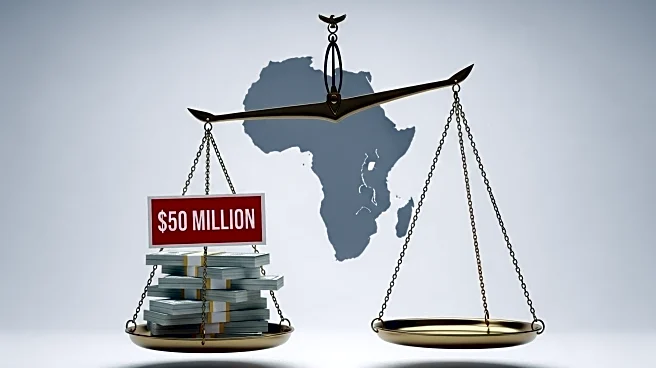What's Happening?
The United States government has suspended $50 million in health sector funding to Zambia due to concerns over systematic theft of medical donations. This decision comes amidst ongoing corruption investigations in Zambia, where former foreign minister Joseph Malanji was recently sentenced to four years of hard labor for corruption. Malanji, along with former treasury secretary Fredson Yamba, was convicted for misappropriating funds and acquiring properties suspected to be proceeds of crime. President Hakainde Hichilema, who came to power with a promise to combat corruption, faces criticism for alleged corruption within his own government, although no ministers have been prosecuted yet.
Why It's Important?
The suspension of US funding highlights the international ramifications of corruption in Zambia, affecting the country's health sector and its ability to provide essential services. This move underscores the US government's stance against corruption and its unwillingness to support regimes perceived as corrupt. The decision could have significant impacts on Zambia's healthcare system, potentially leading to shortages and reduced access to medical services for its population. It also places pressure on President Hichilema to address corruption more effectively within his administration to restore international confidence and support.
What's Next?
Zambia's government has promised to investigate the allegations of corruption, but no prosecutions have been made yet. The international community, including the US, will likely continue to monitor the situation closely. President Hichilema may face increased pressure to demonstrate tangible anti-corruption measures and reforms to regain trust and potentially restore funding. The outcome of these investigations and any subsequent actions could influence Zambia's political landscape and its relations with international partners.
Beyond the Headlines
The broader implications of this development include potential shifts in Zambia's foreign relations and its reputation on the global stage. The case highlights the challenges faced by countries with systemic corruption issues and the impact on governance and public trust. It also raises questions about the effectiveness of international aid and the mechanisms in place to ensure accountability and transparency in its use.










